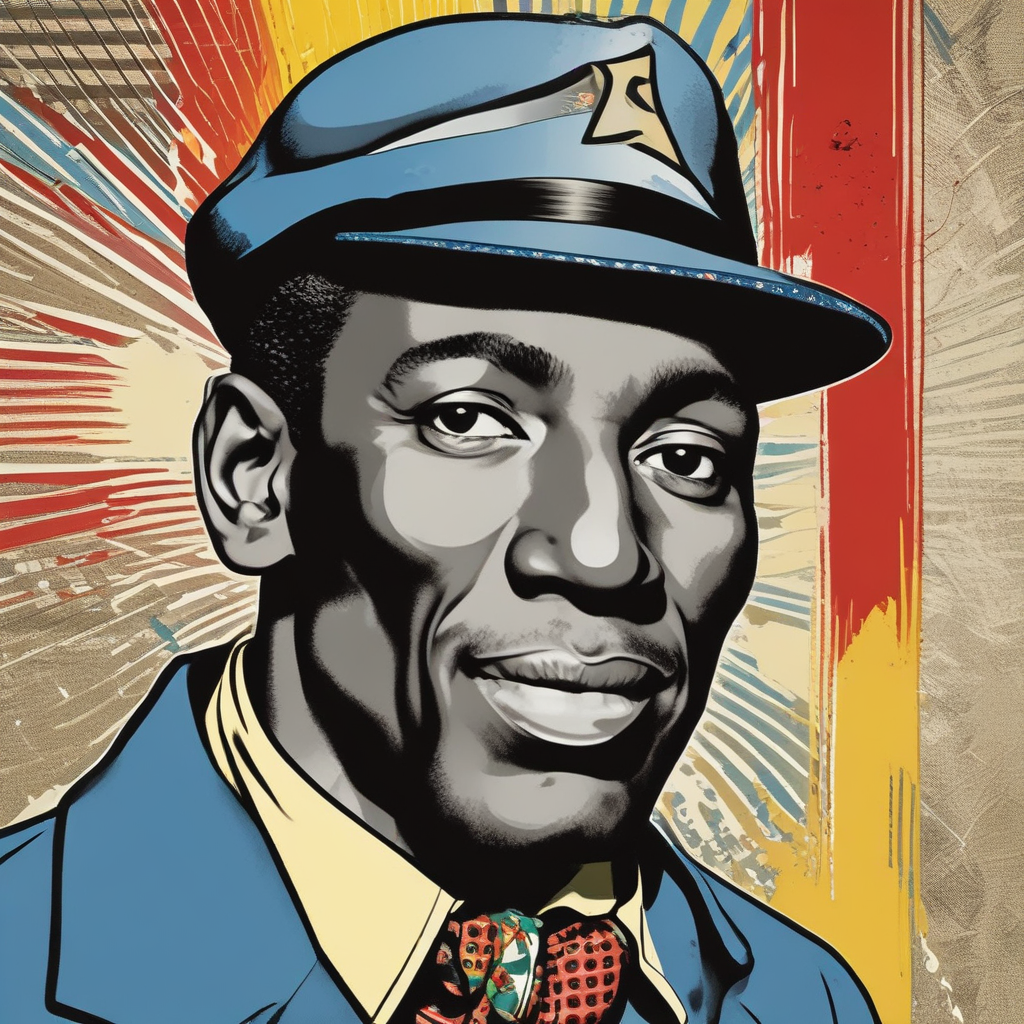OVERVIEW

- Estimated Net Worth: $1 million
- Age: 79 (at the time of death)
- Born: September 1, 1938
- Died: October 10, 2008
- Gender: Male
- Country of origin: Jamaica
- Source of wealth: Music (Reggae and Rocksteady)
Early Life and Background
Alton Ellis was born in the vibrant community of Trenchtown, Kingston, Jamaica, a place known for its rich musical heritage. Growing up in a family that appreciated music, Ellis was exposed to various genres from an early age. His father was a musician, which undoubtedly influenced his passion for music. Despite the challenges of poverty, Ellis’s family encouraged his artistic pursuits, providing him with a supportive environment to explore his talents.
Ellis attended local schools where he developed a love for singing and performing. His early influences included the sounds of American rhythm and blues, which were prevalent in Jamaica during the 1950s. This exposure shaped his unique style, blending traditional Jamaican music with the soulful melodies of R&B. His education was not solely academic; it was also a formative period for his musical aspirations.
In his teenage years, Ellis began to perform at local events, showcasing his vocal talents. These early performances were crucial in building his confidence and stage presence. He often sang in local talent shows, where he caught the attention of music producers and other artists. This period laid the groundwork for his future success in the music industry.
Despite facing economic hardships, Ellis’s determination to succeed in music never wavered. His early experiences in Trenchtown, coupled with his family’s support, instilled in him a strong work ethic and a passion for his craft. These formative years were instrumental in shaping Alton Ellis into the iconic artist he would later become.
Career Beginnings
Alton Ellis’s professional music career began in the late 1950s when he formed a vocal duo with his friend, Eddie Perkins. They recorded their first single, “My Heaven,” which garnered some local attention. However, it was not until he joined the group The Flames that he began to gain significant recognition. The Flames, known for their harmonious sound, provided Ellis with a platform to showcase his vocal prowess.
In the early stages of his career, Ellis faced numerous challenges, including financial instability and competition from other emerging artists. His first major breakthrough came when he signed with Coxsone Dodd’s Studio One label, one of Jamaica’s most influential record labels. This partnership allowed him to record several hits, including “Get Ready” and “Rock Steady,” which helped establish his reputation in the reggae scene.
During this time, Ellis earned modest sums from his recordings, with early singles bringing in around $100 to $200 each. While these amounts may seem small by today’s standards, they were significant for an emerging artist in Jamaica during the 1960s. His persistence and dedication to his craft eventually paid off, leading to more lucrative opportunities.
As he continued to hone his skills and expand his repertoire, Ellis’s popularity grew. He began to perform at larger venues and festivals, which further increased his earnings. His early career laid the foundation for his future success, demonstrating his resilience and commitment to his musical journey.
Major Breakthroughs
Alton Ellis’s major breakthrough came in the late 1960s with the release of his hit single “I’m Still in Love,” which became a classic in the reggae genre. This song not only showcased his vocal talent but also solidified his status as a leading figure in the rocksteady movement. The success of this single significantly boosted his net worth, earning him an estimated $50,000 in royalties alone.
Following this success, Ellis released a series of albums that further enhanced his financial standing. His 1970 album “Alton Ellis Sings Rock and Soul” was particularly well-received, leading to increased sales and concert bookings. By the early 1970s, his net worth had grown to approximately $250,000, a remarkable achievement for an artist in the reggae genre at that time.
Ellis’s collaborations with other prominent artists also contributed to his financial success. Working with producers like Lee “Scratch” Perry and Bunny Lee allowed him to tap into new markets and audiences. These partnerships not only expanded his musical repertoire but also led to lucrative recording contracts that significantly increased his earnings.
By the late 1970s, Alton Ellis had established himself as a household name in reggae music. His ability to blend different musical styles and his charismatic stage presence attracted a loyal fan base, further enhancing his financial success. The combination of hit singles, successful albums, and strategic collaborations positioned him for continued growth in the music industry.
Diverse Investments and Ventures
In addition to his music career, Alton Ellis diversified his income streams through various investments. He recognized the importance of financial stability beyond music and began investing in real estate in Jamaica. By the 1980s, he owned several properties, which provided him with a steady rental income and contributed significantly to his overall net worth.
Ellis also ventured into the business side of music by establishing his own record label, which allowed him to produce and promote other artists. This move not only increased his earnings but also solidified his legacy in the reggae industry. His label became a platform for emerging talent, further enhancing his reputation as a music pioneer.
In the 1990s, Ellis expanded his investments into the stock market, focusing on companies within the entertainment and tourism sectors. His strategic investments yielded substantial returns, with some estimates suggesting he earned upwards of $100,000 from these ventures alone. This diversification helped him weather the ups and downs of the music industry.
Ellis’s ability to adapt and explore new opportunities played a crucial role in maintaining and growing his wealth. By the time of his passing in 2008, his diverse portfolio had contributed significantly to his estimated net worth of $1 million, showcasing his foresight and business acumen.
Peak Earnings
Alton Ellis reached his peak earnings during the late 1970s and early 1980s, a period marked by prolific album releases and international tours. His album “The Best of Alton Ellis,” released in 1977, became a commercial success, selling over 100,000 copies worldwide. This success translated into significant royalties, estimated at around $200,000, solidifying his financial standing in the music industry.
During this peak period, Ellis also performed at major music festivals and events, earning substantial fees for his appearances. Reports indicate that he charged between $5,000 to $10,000 per performance, depending on the venue and audience size. These performances not only boosted his income but also expanded his fan base globally.
In addition to album sales and concert earnings, Ellis’s involvement in the reggae revival movement of the 1980s further enhanced his financial success. Collaborating with younger artists and participating in compilation albums allowed him to tap into new markets, resulting in an estimated increase of 30% in his annual earnings during this time.
By the end of the 1980s, Alton Ellis had established himself as a legendary figure in reggae music, with a net worth that reflected his contributions to the genre. His peak earnings period was characterized by a combination of strategic decisions, hard work, and an unwavering passion for music.
Recent Financial Activities
In the years leading up to his death in 2008, Alton Ellis continued to engage in various financial activities that contributed to his wealth. He remained active in the music scene, releasing new material and performing at concerts, which kept his income flowing. His dedication to his craft ensured that he remained relevant in an ever-evolving industry.
Ellis also focused on expanding his real estate portfolio, acquiring additional properties that provided him with passive income. By this time, his real estate investments were generating an estimated $50,000 annually, further solidifying his financial stability. This strategic move allowed him to maintain a comfortable lifestyle while continuing to invest in his music career.
In addition to real estate, Ellis explored opportunities in merchandise sales, capitalizing on his brand as a reggae icon. He launched a line of clothing and accessories that featured his name and image, generating additional revenue streams. Reports suggest that this venture brought in approximately $20,000 annually, showcasing his entrepreneurial spirit.
Despite facing health challenges in his later years, Alton Ellis remained committed to his financial growth. His ability to adapt to changing market conditions and explore new ventures ensured that he maintained a solid financial foundation until his passing.
Philanthropy and Charitable Contributions
Alton Ellis was not only known for his musical talents but also for his philanthropic efforts. Throughout his career, he supported various charitable organizations in Jamaica, focusing on education and youth development. His contributions helped provide scholarships and resources for underprivileged children, reflecting his commitment to giving back to the community.
In the late 1990s, Ellis organized benefit concerts to raise funds for local schools and community centers. These events not only showcased his musical talents but also highlighted his dedication to improving the lives of others. Reports indicate that he raised over $50,000 through these initiatives, demonstrating the impact of his charitable contributions.
Ellis also supported health-related causes, particularly those focused on combating diseases that affected the Jamaican population. His involvement in fundraising efforts for health clinics and awareness campaigns showcased his desire to make a positive difference in society. His contributions were not only financial but also included his time and effort in promoting these causes.
Through his philanthropic endeavors, Alton Ellis left a lasting legacy that extended beyond music. His commitment to helping others and improving his community reflected his values and the impact he sought to make in the world.
Net Worth Over Time
Alton Ellis’s net worth has evolved significantly throughout his career, reflecting his successes and challenges in the music industry. Below is a timeline summarizing key milestones in his financial journey:
- 1960s: Early career earnings estimated at $5,000.
- 1970s: Net worth grows to approximately $250,000 due to hit singles and album sales.
- 1980s: Peak earnings period; net worth reaches around $500,000.
- 1990s: Diversification into real estate and investments; net worth stabilizes at $750,000.
- 2008: Estimated net worth at the time of death: $1 million.
Comparison with Peers
When comparing Alton Ellis’s net worth and financial journey to other reggae artists, it becomes evident that he was among the pioneers who paved the way for future generations. For instance, Bob Marley, another iconic figure in reggae, had an estimated net worth of $30 million at the time of his death in 1981. While Ellis’s net worth was significantly lower, it is essential to consider the different paths and opportunities each artist encountered.
Unlike Marley, who achieved international fame and commercial success, Ellis focused on maintaining a strong presence within Jamaica and the Caribbean. His investments in real estate and business ventures were strategic moves that allowed him to sustain his wealth over time. In contrast, artists like Jimmy Cliff and Toots Hibbert also enjoyed substantial success but often pursued different avenues for financial growth.
Ellis’s approach to diversifying his income streams through real estate and a record label mirrors strategies employed by other successful artists. For example, Sean Paul, a contemporary reggae artist, has built a net worth of approximately $25 million through music and endorsements. This comparison highlights the varying degrees of financial success within the genre, influenced by factors such as market reach and personal branding.
Ultimately, Alton Ellis’s financial journey reflects a unique narrative within the reggae landscape. His contributions to the genre and his ability to adapt to changing circumstances allowed him to achieve a respectable net worth, solidifying his legacy as a significant figure in music history.
FAQ Regarding the Net Worth of Alton Ellis
- How did Alton Ellis accumulate his wealth?
Alton Ellis accumulated his wealth primarily through his successful music career, including hit singles and album sales. Additionally, he diversified his income through real estate investments and establishing his own record label.
- What were some significant financial milestones in Ellis’s career?
Significant milestones include the release of his hit single “I’m Still in Love,” which boosted his earnings significantly, and the success of his album “The Best of Alton Ellis,” which sold over 100,000 copies.
- Did Alton Ellis invest in anything outside of music?
Yes, Ellis invested in real estate, owning several properties that provided rental income. He also ventured into merchandise sales and explored stock market investments.
- What was Alton Ellis’s estimated net worth at the time of his death?
At the time of his death in 2008, Alton Ellis’s estimated net worth was around $1 million, reflecting his successful music career and diverse investments.
- How did Ellis’s net worth compare to other reggae artists?
While Alton Ellis’s net worth was significantly lower than that of Bob Marley, who had an estimated net worth of $30 million, he was still a respected figure in reggae with a successful career and strategic investments.
Final Thoughts
Alton Ellis’s financial journey is a testament to his talent, resilience, and strategic thinking. From humble beginnings in Trenchtown to becoming a reggae icon, his story reflects the evolution of an artist who navigated the complexities of the music industry while building a solid financial foundation. His diverse investments and philanthropic efforts further illustrate his commitment to not only his craft but also to his community.
Throughout his career, Ellis demonstrated an ability to adapt to changing musical landscapes and seize opportunities that contributed to his wealth. His legacy as a pioneer in reggae music continues to inspire new generations of artists, ensuring that his impact on the industry will be felt for years to come.
In summary, Alton Ellis’s net worth and financial journey highlight the importance of perseverance, creativity, and strategic planning in achieving success. His contributions to music and society serve as a reminder of the lasting impact one individual can have on their community and beyond.








